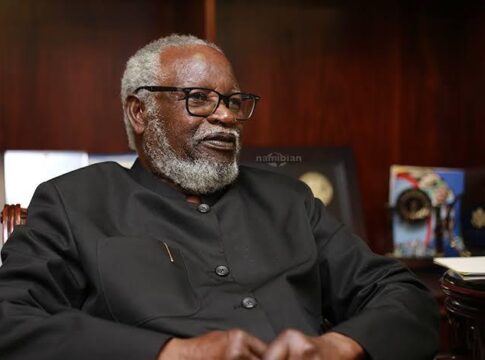The Nigerian House of Representatives’ proposal to create 31 new states has drawn sharp criticism from constitutional lawyer Mike Ozekhome, who has called it “wasteful” and “needless.”
With over two-thirds of Nigeria’s current 36 states struggling for economic viability, Ozekhome argues the country cannot afford the financial burden of additional administrative structures.
“Why talk about 31 new states when most of the existing ones are on life support, surviving solely on federal allocations?” Ozekhome stated in a release. He called the move a distraction from pressing national issues like poverty, hunger, and unemployment, which continue to grip millions of Nigerians.
The proposed states include Okun and Lagoon in the South-West, Savannah in the North-East, and Orashi in the South-East, among others. Lawmakers argue the additions would improve regional balance and representation.
Ozekhome, a Senior Advocate of Nigeria, questioned the feasibility of creating new states given the stringent constitutional process required. “This exercise is meaningless when over 60% of existing states struggle to generate revenue and depend on Abuja for survival,” he said.
READ MORE: Nigeria’s FX Reserves Drop by $1.16 Billion in January Amid Increased Dollar Sales to BDCs
He also pointed to rising administrative costs, warning that creating more states would further strain Nigeria’s already stretched federal resources. According to the Central Bank of Nigeria, federal allocations to states accounted for over 30% of Nigeria’s $18 billion revenue shortfall in 2024.
Proponents of the proposal argue that creating new states would bring government closer to citizens, promote regional development, and address long-standing inequalities. For instance, the South-East remains the only region with five states, compared to six in other zones.
“We believe this is a step toward correcting historical imbalances,” said Benjamin Kalu, Deputy Speaker of the House. However, Kalu clarified on February 6 that the proposal was part of private member bills and not an official position of the House.
State Creation Process: A Herculean Task
Under Nigeria’s 1999 Constitution, creating a new state requires approval from two-thirds of lawmakers in the affected area, a referendum with two-thirds majority support, and endorsements from 24 state Houses of Assembly and the National Assembly.
The last successful state creation in 1996 increased Nigeria’s states from 30 to 36. Analysts say replicating this feat would be nearly impossible today due to Nigeria’s economic and political challenges.
A Call for Pragmatism
Ozekhome proposed alternative solutions, including granting the South-East one additional state to ensure parity across regions and introducing a new people-driven constitution to address systemic issues. “What Nigeria needs is justice and equity, not more states that will drain resources,” he said.
As public debates heat up, lawmakers face the challenge of balancing regional aspirations with fiscal realities. For many Nigerians, the question remains whether the nation should prioritize state creation over addressing poverty, infrastructure, and governance deficits.




